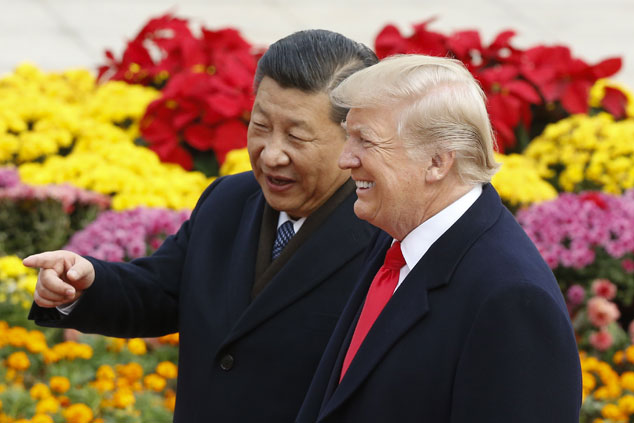
BAML’s chief strategist Michael Hartnett puts it down to worries about recession; about trade wars; about high levels of corporate debt; and about “monetary policy impotence” – the possibility that central bankers can’t do much more to stimulate debt-ridden economies. This makes some sense. But long-term readers will remember that March 2009 was the bottom of the bear market of 2007-2009; and know that stockmarket returns are only partly about these things. Politics (in the form of a trade war, or even a long cold war between the US and China) matters far more to markets than it did a few years ago. But still, barring political apocalypse, the most important factor behind your returns is the price at which you buy.
Here it gets complicated. Markets look pricey, says Societe Generale’s Andrew Lapthorne. But look closer and you’ll see a huge “polarisation of value”. Stocks that operate as bond proxies (ie, that rise with rising bond prices) have become pricier, while “more cyclical and negatively bond-correlated equities have seen valuations slump to levels normally associated with a recession”. There are actually many more stocks trading below average valuations than usual. So much so, you could almost say that while the average equity market isn’t cheap, given that the overvaluation is concentrated in fewer stocks than usual, the average stock is. If you know where to look, there’s lots to buy.
With that in mind, turn to our cover story. Few people would think of the UK as home to a group of world-leading engineering firms. They should think again. As Mike notes, the UK is a hotbed of international engineering brilliance. For two reasonably-priced stocks to think about, turn to this week’s cover story.
This week, we review Bitcoin Billionaires, a book on how the Winklevoss twins overcame the disappointment of “derisory” compensation from Mark Zuckerberg (for their contributions to founding Facebook) to make a fortune from cryptocurrencies. Dominic Frisby wonders if Zuckerberg may be about to have the last laugh? Facebook is backing the launch of a new crypto, Libra, one that (thanks to the 2.7 billion users of Facebook products) could get traction at a speed of which bitcoin bulls couldn’t dare to dream.
Bitcoin (now ten years old) hasn’t reinvented money, nor improved many people’s lives (the Winklevoss family aside, of course). Libra, says Dominic, may not be a particularly pure crypto, but it “could still be world changing”. For more, see Anthony Hilton’s thoughts on modern payment systems (it’s all about China) and listen to our latest podcast on the topic. I haven’t been especially interested in cryptocurrencies so far. But, as you will hear, I’m very interested in Libra.